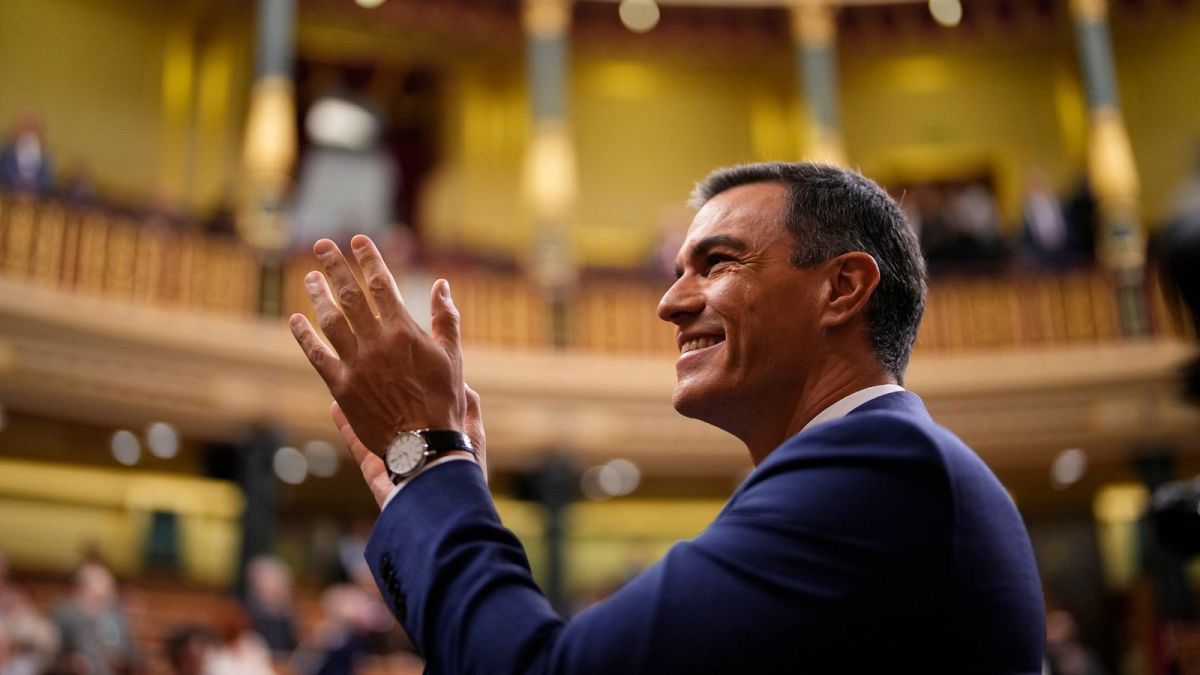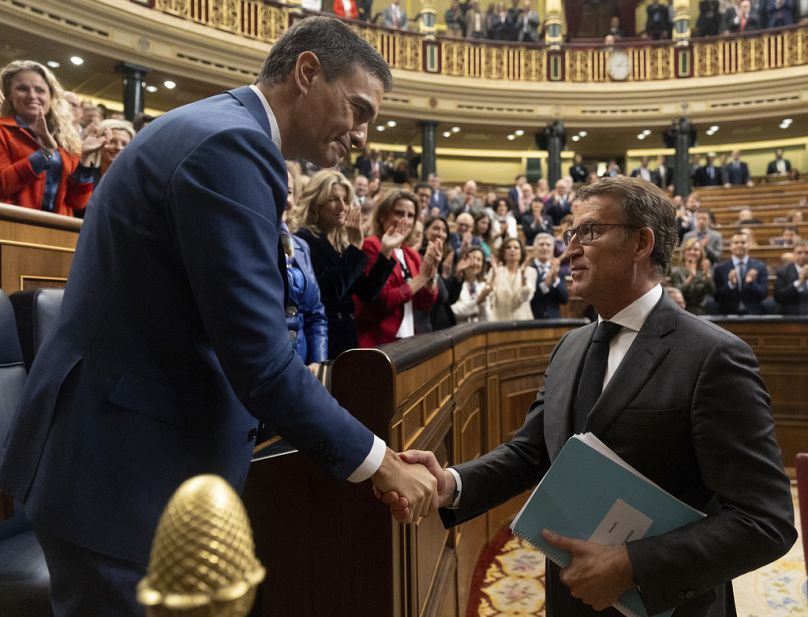Spanish deputies voted in Sánchez for a second term by 179 votes to 171. Only right-wing opposition lawmakers voted against him.
Spain’s acting Socialist prime minister, Pedro Sánchez, was reelected by a majority of legislators in a parliamentary vote Thursday, allowing him to form a new minority leftist coalition government.
The vote comes at the end of nearly two days of debate among party leaders that centred almost entirely on a highly controversial amnesty deal for Catalonia’s separatists.
Sánchez secured the vital support needed to get elected prime minister again from six smaller parties, allowing him to reach the absolute majority of 176 votes needed to be reelected and form another minority coalition government with the left-wing Sumar (Joining Forces) party.
Spain's inconclusive national elections on 23 July left a highly fractured parliament. The centre-right Popular Party received the most votes in the elections but failed to get enough support to form a government because of its alliances with the far-right Vox party.
The Socialists finished second with 121 seats in the 350-seat Parliament but now have the support of 179 lawmakers following a series of pacts.
It remains to be seen if Sánchez can maintain the support over the next four years.
The amnesty deal that Sánchez’s Socialists signed with two key Catalan separatist parties that command 14 votes would clean the slate for hundreds of Catalan separatists in legal trouble following the northeast region’s illegal 2017 secession bid that sparked Spain’s biggest crisis in decades.
The amnesty law would benefit former Catalan regional president Carles Puigdemont, who is a fugitive from Spanish law and considered public enemy No. 1 by many Spaniards.
Despite lingering disagreements, the two Catalan parties as well as two Basque ones have said they intend to back Sánchez on Thursday but have let him know that he must fulfill the economic and political deals reached with each of them.
“We respect the agreements we reached. We started negotiations months ago that continue today, and Sánchez’s investiture is just one of the points of the agreement we have signed,” Míriam Nogueras, the parliament spokesperson for Puigdemont's party, Junts, said.
Spain’s judiciary has criticised the proposed amnesty. The European Union is reviewing it.
The proposal sparked street protests backed by the Popular Party and Vox which accuse Sánchez of betraying the nation just to stay in power. Protests outside the Socialist Party’s headquarters in Madrid turned ugly last week and again on Wednesday night.
"The only real reproach that the right makes against us is that with these agreements we will have won the government. Which is what is going to happen today,” Sánchez said Thursday.

